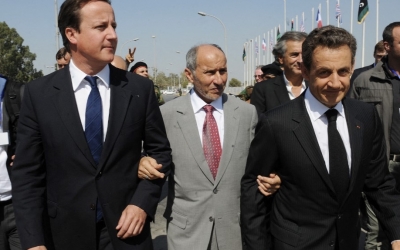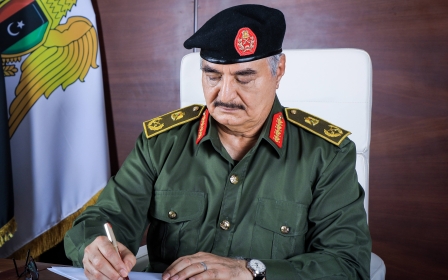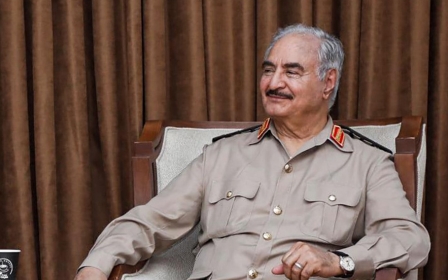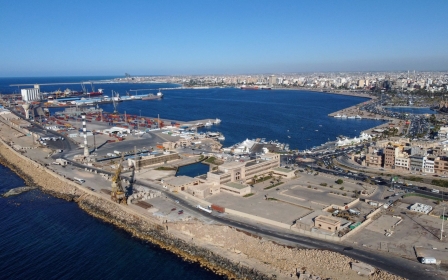US judge recommends Libya's Khalifa Haftar be found liable for torture and war crimes
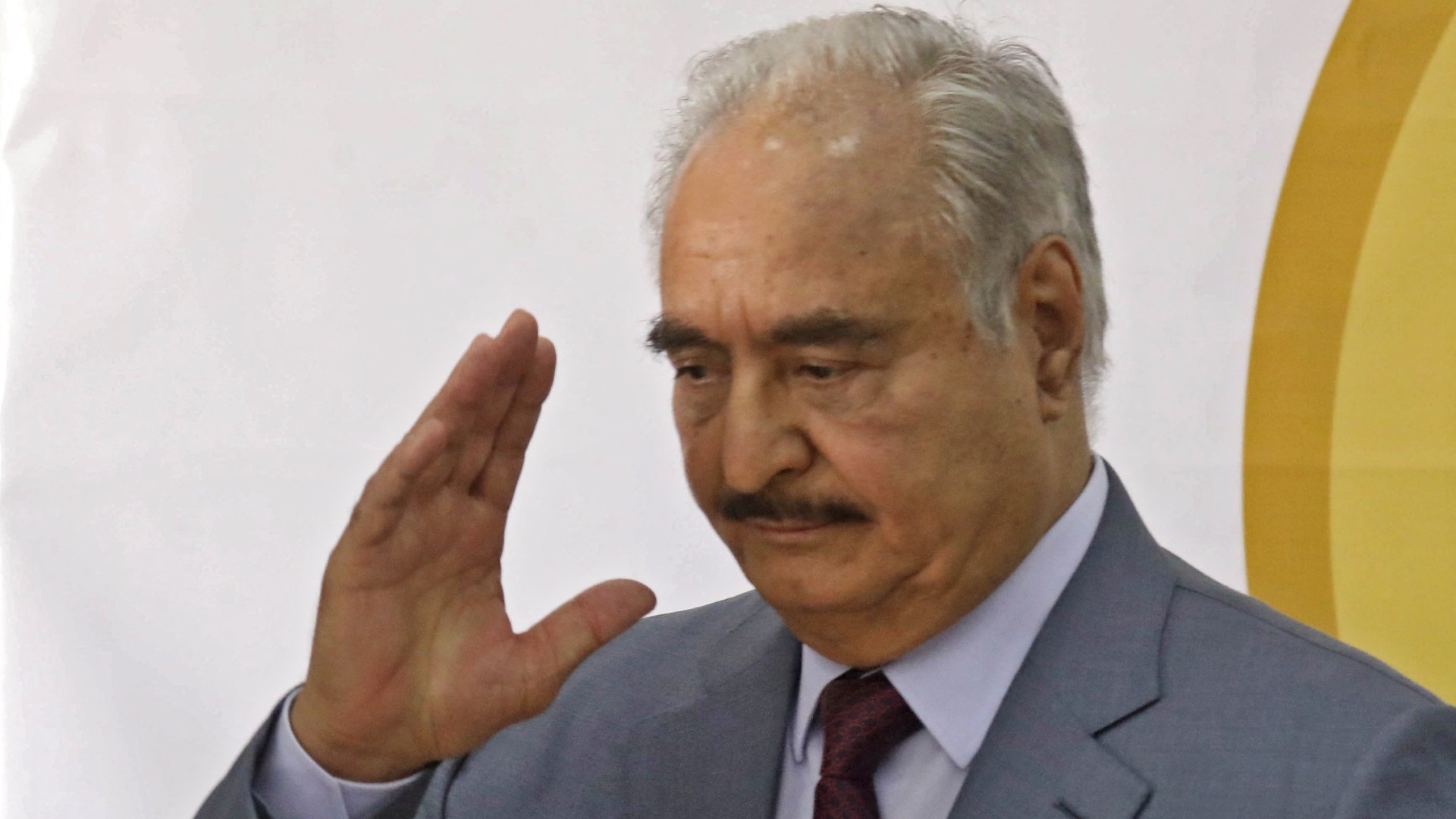
A US judge has recommended issuing a default judgement against Libya's eastern military commander Khalifa Haftar, in a case where he stands accused of extrajudicial killings of civilians, paving the way for him to be potentially found guilty of war crimes and torture in an American court.
John Anderson, a magistrate judge, filed an order that would recommend the principal judge, Leonie Brinkema, to grant a default judgement against Haftar.
In his filing, Anderson rebuked the Libyan-American national, who he accused of delaying the litigation process by failing to respond to appear in court or communicate with it.
"Despite the gravity of the claims at issue, [the] defendant has steadfastly refused to sit for a properly noticed and scheduled deposition after several years of litigation," the judge said in the ruling, referring to Haftar.
"It is apparent that sanctions other than entry of default as to liability would be ineffective at remedying defendant's discovery misconduct.
"The likelihood that [the] defendant will ever sit for a deposition is almost nonexistent," the judge said.
Multiple families have filed lawsuits against Haftar in US courts, in which he is accused of torturing and killing their relatives.
The families are seeking compensation under the Torture Victim Protection Act of 1991, which allows non-US citizens to seek compensation from individuals who, acting in an official capacity for any foreign nation, allegedly committed torture or extrajudicial killing.
"We are looking at a monetary judgement. The judge will rule based on what the law provides for compensation to victims of such crimes, and the court may decide to add to the normal range of compensation based on other circumstances of the case," Emadeddin Muntasser, a Libyan-American activist, president of the Democracy and Human Rights Foundation and advisor to war crime victims, told Middle East Eye.
"In my estimate, we are looking at a total judgement exceeding $100m dollars in all three cases. The next question will be how to collect."
Haftar, who has been a Virginia resident for decades, tried to have the lawsuits tossed out under the claim of immunity as head of state. However, his attempts have been unsuccessful.
Last month, Haftar was a no-show at a long-sought video deposition where he was going to be asked about his alleged role in the extrajudicial killings and torture of Libyan civilians in the country's decade-long civil war.
According to the Wall Street Journal, Haftar has owned various property holdings in Virginia worth millions of dollars.
Legal and political implications
On the same day that Judge Anderson filed his recommendation, he also heard a motion from Haftar's attorneys to withdraw from representing the military commander.
Anderson ruled that the withdrawal would only be approved if Haftar's lawyer, Jesse Binnall, discloses Haftar's physical address and indicates he was served by the court and notified that he has 14 days to respond to any judge's ruling.
The court also ruled that Haftar will not be given any additional time, even if he were to obtain a new attorney.
MEE reached out to Binnall for comment on the motion to withdraw as Hafar's legal representative but did not receive a response by the time of publication.
The principal judge, Brinkema, is set to issue her own final ruling in this case on 24 June. If Brinkema were to issue a judgement against Haftar, it would have serious ramifications for the Libyan commander who has for years been vying to become the leader of the North African country.
Should Haftar be found guilty of war crimes in a US court, it could affect his ability to work with international actors and seek cooperation from Washington, as well as its allies.
"A default judgement of responsibility for these heinous crimes will have tremendous diplomatic and legal implications for Haftar and for anyone who continues to deal with him," Muntasser told MEE.
"It will become an embarrassment and a possible legal liability, I believe, for any diplomat now to deal with someone who has been found responsible for war crimes in an American court."
A former CIA asset, Haftar returned to Libya following the country's 2011 uprising and served in the internationally recognised government until 2014, when civil war broke out in the country.
In 2019, he mounted a 14-month campaign to take control of the capital, Tripoli. Fighting soon devolved into a proxy conflict with his Libyan National Army (LNA) receiving support from Russia, the United Arab Emirates, Egypt, Chadian and Sudanese fighters, as well as other mercenary groups.
Haftar was eventually pushed back after Turkey intervened by providing fighters, combat drones and military equipment to support the government in Tripoli.
Following a ceasefire in October 2020 and the establishment of a unity government, the country was headed towards elections in December 2021, but polls were delayed and Libya continues to remain divided politically.
This article is available in French on Middle East Eye French edition.
Middle East Eye delivers independent and unrivalled coverage and analysis of the Middle East, North Africa and beyond. To learn more about republishing this content and the associated fees, please fill out this form. More about MEE can be found here.



